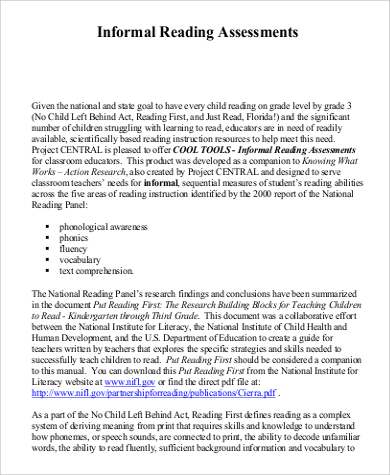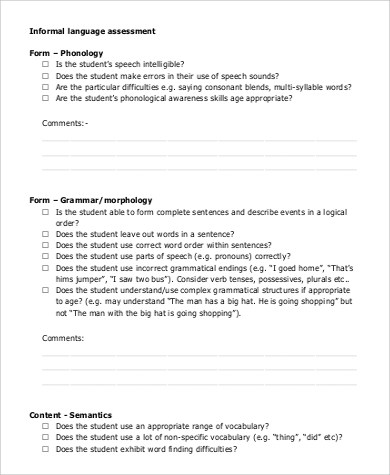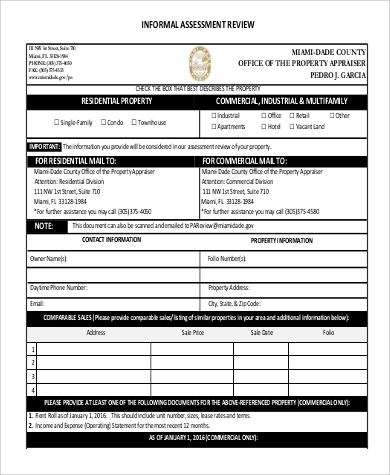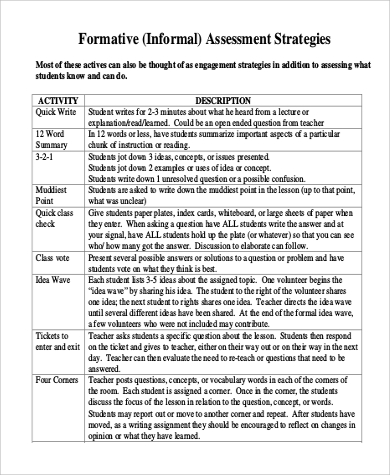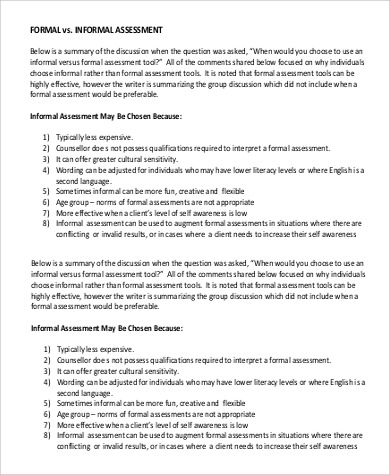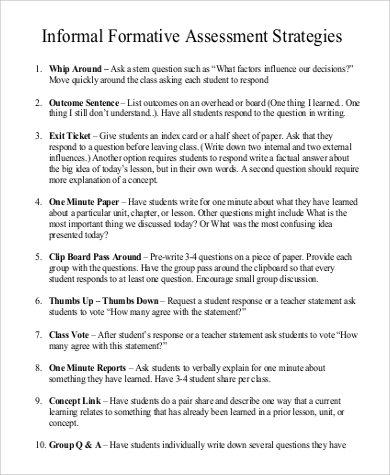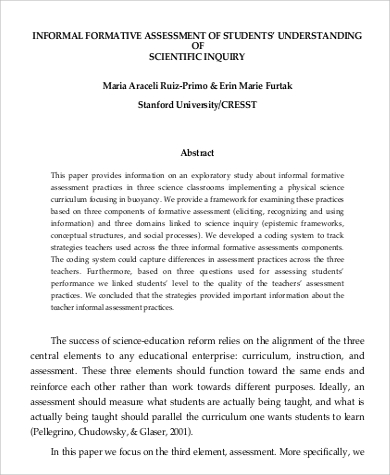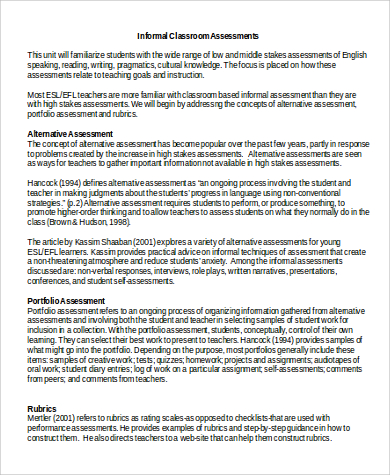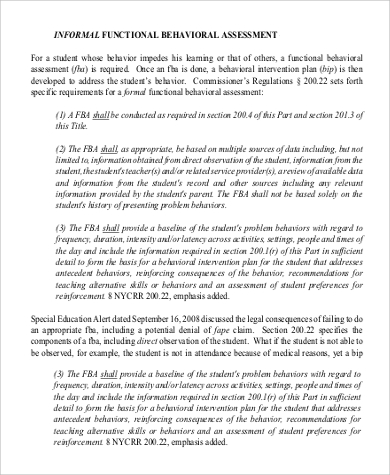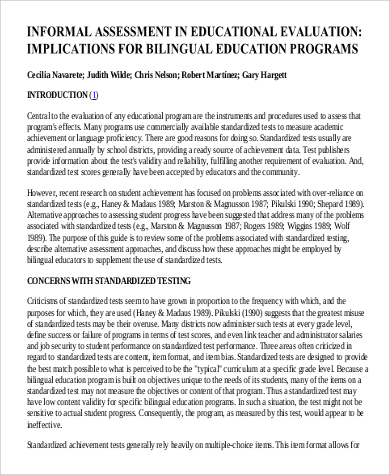Students and teachers are very familiar with the word assessment. It is a process where one, a student perhaps, is evaluated by the teacher on the things that he/she has learned from the course or subject. This is usually done through quizzes, exams, activities, and the like.
Assessments come in many forms and methods. They also come with their specific standards and expectations. But one thing is sure, teachers just want their students to learn, that is why they want to find out if they are. If you are by any chance a teacher and is looking for ways you can conduct an assessment, below are Sample Assessments you should not miss out on.
Sample Informal Reading Assessment
Informal Language Assessment in PDF
Informal Assessment Review Example
Basic Informal Formative Assessment
Standard Informal and Formal Assessment
Assessment is an evaluation of the quality of a product service, ability, or skill. Assessments can be formal or informal. Formal assessments are data driven, which means it uses a standardized method in doing so. Informal assessments, on the other hand, are not data-oriented; they focus more on the content, character, and performance, and this is what the templates and the article is all about. Instead of using standardized methods, this sort of assessment uses things like observations, portfolios, and checklists.
Some Informal Assessment Techniques
- Classroom Games – Students learn better when they are having fun. Not only is the pressure and stress lessened in playing games, it also keeps the students’ interest. Plus, this is a great way for you to learn the skills and attitude of your students; how well they perform tasks and work with their classmates.
- Interviews – This is done through questions and is a good way of finding out which parts of the topic students understand and the parts where they have minimal understanding.
- Thinking in Pairs – This is an activity where students pair up and share their ideas and answers with each other and then they can share what they have in front of the class. This can also be done in groups (group sharing).
- Concept Mapping – This is an activity where students are encouraged to express their understanding on a topic using concept maps or diagrams.
- Quick Writing – This is an activity where you ask the students a question, usually open-ended, and you give them 2–3 minutes to write what they have learned from your discussion.
You may also check out our Risk Assessment Reports and Sample Assessment Plans if you feel like you need them as well. They are also for free!
Informal Formative Assessment Strategies
Printable Formative and Informal Assessment
Informal Classroom Assessment in Word
Informal Functional Behavior Assessment Example
Informal Assessment in Educational Evaluation Format
Advantages of Informal Assessment
- You can conduct them without a lot of planning, and some of its activities are where students can express their values and opinions.
- The activities for this assessment is less stressful to students since they don’t immediately realize that what they are doing is a form of an assessment.
- This gives you a more accurate picture of a child’s progress and ability since it is not influenced by scores, cutoffs, and passing marks.
Other Types of Assessment in School That You Should Be Familiar with as Well
- Formative assessment
- Summative assessment
- Diagnostic assessment
- Synoptic assessment
In case you need other sorts of assessments aside from those discussed and enumerated here, you may continue browsing through our website. We also have Product Risk Assessments in case you need them.
Related Posts
FREE 10+ Market Assessment Samples in PDF | MS Word
FREE 10+ Quality Risk Assessment Samples [ Control, Assurance, Management ]
FREE 6+ Immediate Termination of Lease Agreement Samples in MS Word | Google Docs | Apple Pages | PDF
FREE 10+ Qualitative Risk Assessment Samples in PDF | DOC
FREE 10+ Comprehensive Needs Assessment Samples in PDF
FREE 10+ Evaluation Quality Assessment Samples [ Self, Loss, Data ]
FREE 10+ Promotion Assessment Samples [ Health, Self, Employee ]
FREE 10+ Environmental Impact Assessment Samples in PDF | DOC
FREE 10+ Employee Competency Assessment Samples in PDF | DOC
FREE 10+ Safety Assessment Samples [ Home, Health, Risk ]
FREE 10+ Change Impact Assessment Samples [ Management, Control, Request ]
FREE 10+ Qualitative Assessment Samples in PDF | DOC
FREE 10+ Staff Assessment Samples [ Workplace, Health, Risk ]
FREE 10+ Vulnerability Assessment Samples [ Security, Network, Risk ]
FREE 6+ Vendor Risk Assessment Samples [ Management, Security, Financial ]
